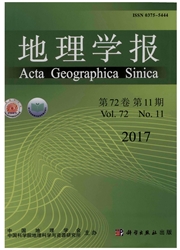

 中文摘要:
中文摘要:
金融业渐进式准入制度直接影响外资银行进入中国市场。伴随改革开放进程,外资银行最初聚集于经济特区和北京,进而扩散到上海、天津、大连和广州,以致于中西部城市,如重庆、成都和西安。外资银行的分行支行尤为聚集于珠三角、长三角和京津等经济发达地区,代表处则偏好聚集于北京和上海。条件逻辑模型统计结果表明,外资银行所有权优势、内部化优势和中国城市的区位优势,尤其是制度优势和银行业规模经济优势共同影响外资银行分支机构在中国的区位选择。外资银行尤为偏好金融规模效应显著、对外资银行准入管制较少的贸易型城市,央行总部及其区域性分行所在城市也是外资银行偏好的区位。由于代表处与分行或支行的功能差异,两者的区位行为存在一定不同。
 英文摘要:
英文摘要:
The gradual approach of reforms and deregulations in China's banking sector has guided foreign banks in China. Foreign banks are highly concentrated in Shanghai, Beijing, Shenzhen, Guangzhou, Tianjin and Xiamen. They initially chose special economic zones and the capital city of Beijing, later diffused to Shanghai, Tianjin, Dalian and Guangzhou, and recently to some inland cities. Branches or sub-branches are more likely to agglomerate in Shanghai while representative offices favor both Beijing and Shanghai. The statistical analysis indicates that banking opportunities, banking sector size and externalities associated with financial centers direct the city choices of foreign banks in China. Foreign banks significantly favor cities with fewer restrictions on foreign banking activities and tend to be located in cities with more intemational trade and foreign enterprises, suggesting the significance of following the customer strategy. The location choices of foreign banks within China are also dependent on the investing banks' countries of origin. Representative offices and branches or sub-branches show some different locational behaviors in China. The importance of informational externalities and first-mover advantages would fuel the spatial agglomeration of foreign banks in China.
 同期刊论文项目
同期刊论文项目
 同项目期刊论文
同项目期刊论文
 期刊信息
期刊信息
